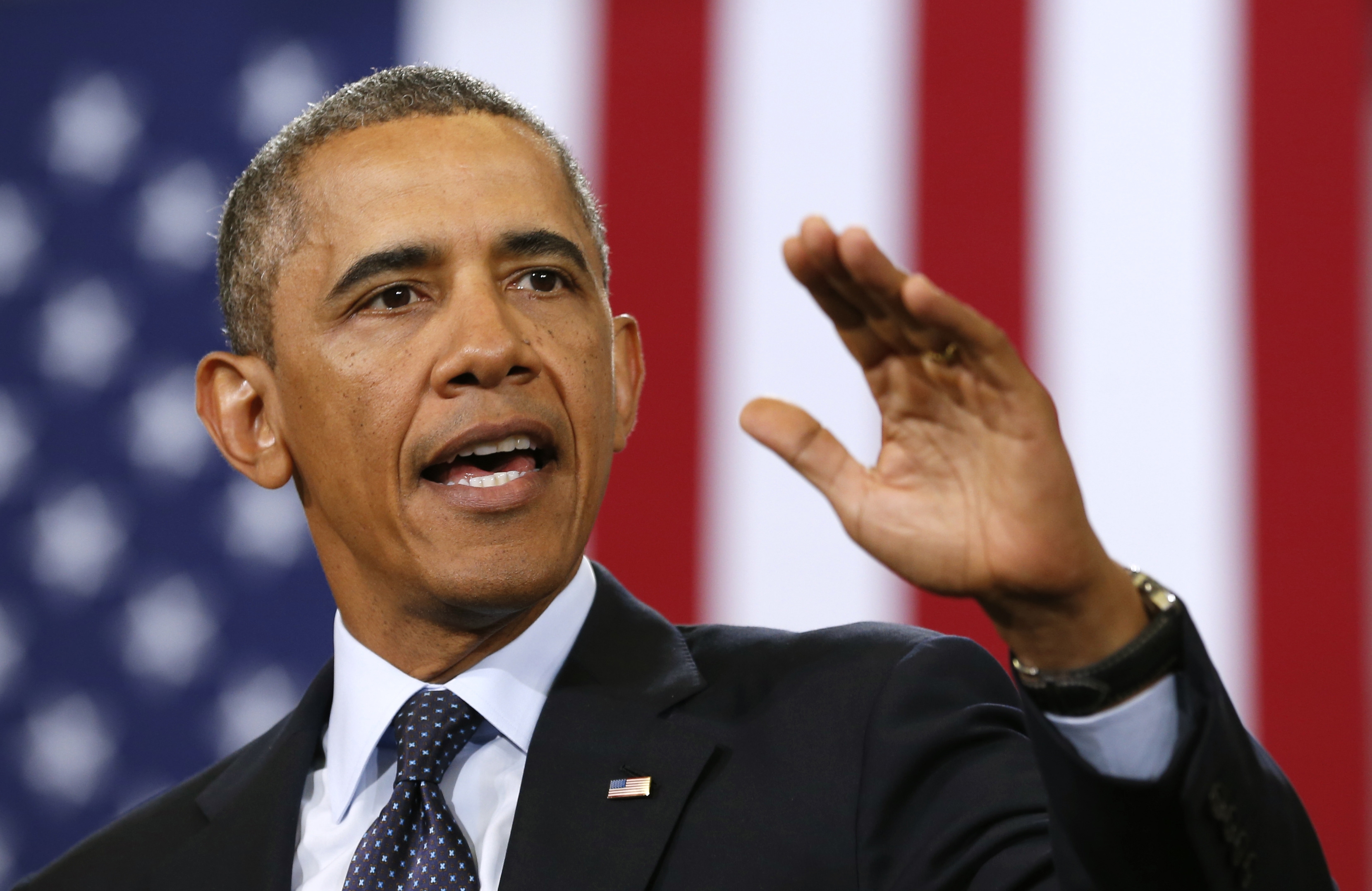To mark the Persian New Year of Nowruz, President Obama released a video greeting to the Iranian people. “For decades, our nations have been separated by mistrust and fear,” he said. “Now it is early spring. We have a chance—a chance—to make progress that will benefit our countries, and the world, for many years to come.” The message was meant to encourage Iran’s people to pressure their leaders and commit to a deal on the controversial nuclear energy program with the United States and its allies.
If Iran’s leaders make the right choices, Obama said, “a nuclear deal now can help open the door to a brighter future for you—the Iranian people, who, as heirs to a great civilization, have so much to give to the world.”
By now, Secretary of State John Kerry has almost certainly spent more time with his Iranian counterpart, Mohammad Javad Zarif, than with any other foreign minister in the world. Unofficial relations between the two countries seem closer today than they have been at any time since the 1979 revolution. The two sides met again several times this week in Lausanne, in an effort to address final sticking points. “We made a lot of progress,” Kerry told reporters there. The talks have now been suspended because of the New Year’s holiday, and will resume next Wednesday for a final two-day push.
The negotiating teams have developed a respectful working relationship, close enough to be displayed to the public during a time of mourning, After news reports announced the death of Sakineh Peivandi, the mother of the Iranian President, Hassan Rouhani, and of his brother Hossein Fereydoun, who is one of the negotiators, Kerry and Secretary of Energy Ernest Moniz, a nuclear physicist who recently joined the American negotiating team, paid a condolence call on Fereydoun in Lausanne. In a press statement, Kerry said, “We share in their grief . . . and we keep their family in our thoughts.”
An Iranian news agency released several pictures of the visit. In one, Kerry and the President’s brother are walking toward each other with open arms, about to embrace. Another showed Kerry, seated next to Fereydoun, reaching out to hold his arm. These images and others, which would have been considered treasonous in Tehran not long ago, were widely shared on social media.
The Iranians have returned home for Nowruz and the funeral service. Funerals in the families of Iranian leaders usually involve both politics and public pageantry. Even bitter rivals show up to pay respects. The occasion will be an opportunity for President Rouhani to demonstrate his standing in Iran, and perhaps rally support for a deal.
Serious obstacles remain, Obama noted in his video greeting. They are said to primarily concern Iran’s nuclear research and development programs and the terms for lifting the punitive international sanctions imposed on Iran over the past decade.
More troubling, the United States and France are split: France insists that Iran disclose all past military research and development activities that could be used to build a warhead to deliver a weapon and that sanctions be lifted in slower phases.
For eighteen months, the details of the talks—between Iran and the United States, Britain, China, France, Germany, and Russia—remained closely held, with few leaks, despite deep disputes among members on other international issues, notably between the United States and Russia over Ukraine. But on Thursday the French Ambassador to Washington, Gérard Araud, spoke out unilaterally, signalling the breach. “France has always been clear about the guarantees she considers necessary,” he said. “She has already proven the firmness of her position.” Kerry and his European counterparts are due to meet Saturday to try and sort out their differences.
Zarif, the Iranian Foreign Minister, countered on Twitter, “Iranians have already made their choice: Engage with dignity. It’s high time for the U.S. and its allies to choose: pressure or agreement.”
A potential deal faces even bigger challenges down the road. In his video message, Obama said, “There are people, in both our countries and beyond, who oppose a diplomatic resolution. My message to you—the people of Iran—is that, together, we have to speak up for the future we seek.”
Senators Bob Corker, a Republican, and Robert Menendez and Tim Kaine, both Democrats, introduced a bill this month that would require Obama to submit the text to Congress for review. More than three hundred House members sent a letter to the White House this week demanding that any permanent sanctions relief require new legislation.
Senator Lindsey Graham warned Thursday that he would move to suspend U.S. funding of the United Nations if it moved to lift sanctions on Iran before receiving congressional approval. “Twenty-two per cent of the funding for the United Nations comes from the American taxpayer, and I’m in charge of that account,” Graham said on Fox News. And two Republican House members, Peter Roskam and Lee Zeldin, asked colleagues to co-sign a letter to Obama threatening to cut off funding for the negotiations.
Near the end of his video message, Obama quoted the fourteenth-century Persian poet Hafez on the joys of a new season, and said, “This moment may not come again soon. I believe that our nations have an historic opportunity to resolve this issue peacefully—an opportunity we should not miss.” Getting an agreement from the Iranians may prove easier than winning approval in Washington.
Excerpts of this article are from that written by Robin Wright in the New Yorker.











